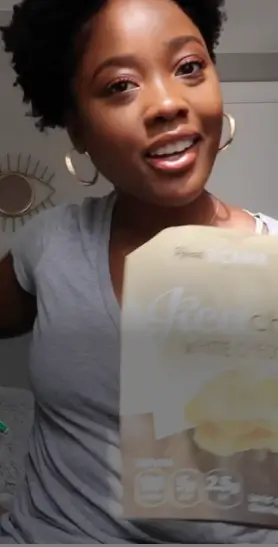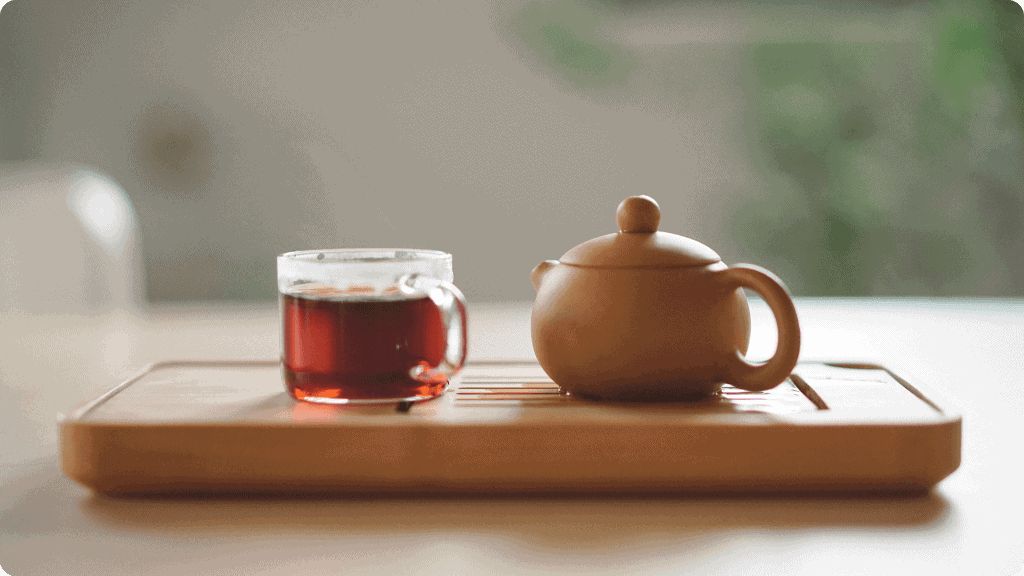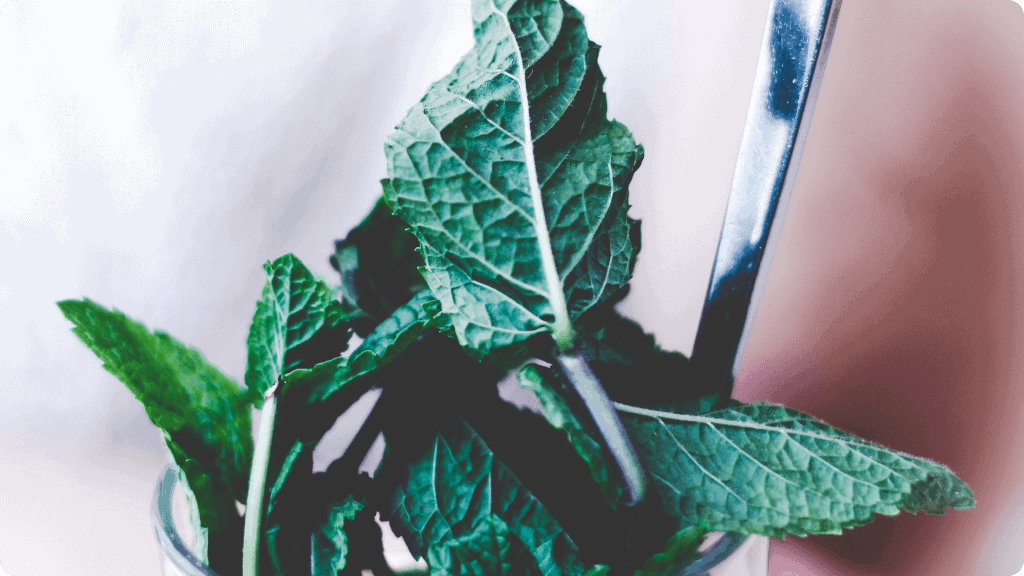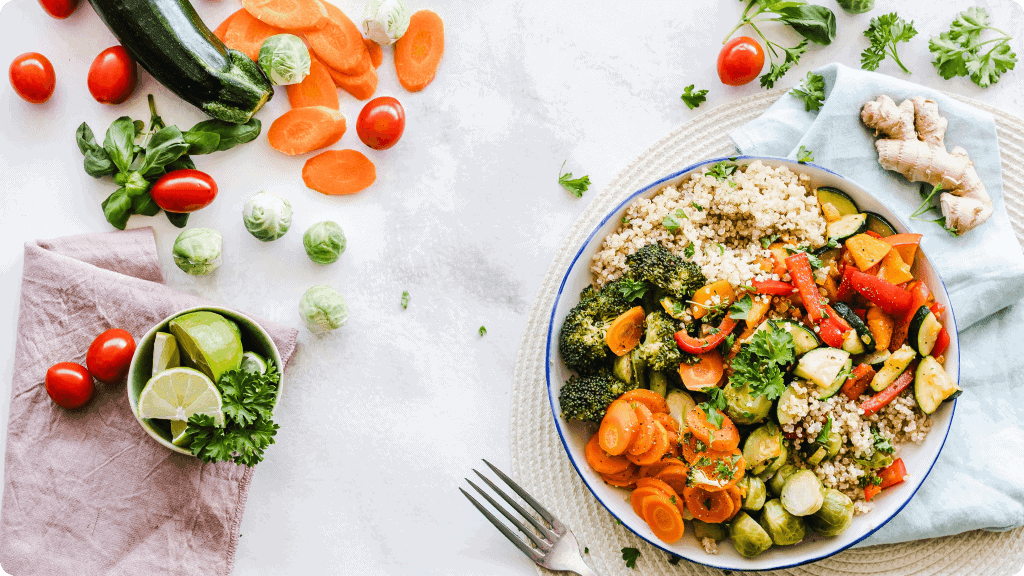


Find foods you can eat.
Tips to Beat Holiday Bloating
Published on December 24, 2020It’s the holiday season and though it’s a fun, joyful time of year, it can also exacerbate digestive woes brought on by too much food and alcohol, the wrong types of food, and overall stress levels. If you suffer from IBS or SIBO, you are likely all too familiar with the sensation of bloating. Many people suffer from bloating at this time of year whether they have IBS or not. Fortunately, there are several self-care remedies that can help minimize the bloat and get you zipping your pants again in no time!
Prevention

Image from Rachel Paul’s Food
I hate to be a party pooper, but the best way to beat holiday bloating is to avoid it in the first place! Giant meals are a huge trigger for bloating, so when you are heading into a holiday or special occasion, try to eat regular meals throughout the day or have a snack before the big meal. If you go into a meal feeling completely ravenous, it’s a great way to practically guarantee you will overeat.
Whether you are hosting the holiday or going to someone else’s house (or maybe just keeping it in the household thanks to COVID), be sure to prepare some favorite dishes you know sit well with you. There is no shortage of IBS friendly recipes online! Avoid carbonated beverages which can contribute to gas and bloating. Limit alcoholic beverages to a small serving, since alcohol is a known gut irritant. Be mindful of portion sizes, and pay attention to your sense of fullness. Try to eat slowly by chewing your food thoroughly and drinking sips of water in between bites. If you suffer from GERD, though, it may be best to avoid drinking during meals.
It is an interesting tradition that we like to stuff ourselves to the gills on holidays. I have so many memories of various members (myself included) laid out on the couch after a holiday meal with stretch pants on or pants unbuttoned, popping the Tums, and complaining about how full we are. When you have IBS, your gut is already more sensitive and prone to bloating, so you may end up feeling far worse than others who don’t have IBS. So it’s worth trying to prevent getting to that point of no return in the first place. Alas, we are all human and we are creatures of habit, so if you do overdo it, try one of the tips below.
Sip on Some Herbal Tea

Image by Manki Kim on Unsplash
Multiple types of herbal tea can help with bloating and gas including peppermint, ginger and fennel. Ginger tea can be especially helpful if you suffer from nausea. Fennel tea may have anti-inflammatory effects which can help to relax the muscles of the intestinal tract. If you’ve been to an Indian restaurant, you may have noticed that many offer fennel seeds on your way out, which is partly to help stimulate digestion. Please note: If you follow a Low FODMAP diet, some herbal teas are high in FODMAPs including fennel tea; however, fennel seeds are Low FODMAP. You can always use the Fig app to search for teas that are low FODMAP – or to scan any tea you have in your pantry to see if it’s low or high FODMAP.
Besides the possible medicinal effects of these herbs, there’s also something so nourishing about sipping on tea. It’s warming in these cold months and can be calming and soothing to our overall system. I think we all could use a little more stress relief around this time of year!
The Wonders of Peppermint

Image by Eduardo Cano Photo Co. on Unsplash
Peppermint has been used as a digestive remedy for centuries and there is some research to suggest that peppermint oil may help reduce IBS symptoms. I mentioned peppermint tea above, but you can also try enteric coated peppermint capsules before your holiday meal. Be aware that if they aren’t enteric-coated, the peppermint may release in the stomach causing heartburn, belching, or anal burning. Peppermint is an antispasmodic so it can help to soothe and calm the muscles in the colon. It is also thought to be a carminative (gas relieving) and antibacterial. I often recommend the brand IBgard to patients because it is designed to release mostly in the small intestine, which is where you want it to go. Heather’s Tummy Tamers brand of peppermint oil is also enteric-coated and contains fennel, ginger, and peppermint for a synergistic effect. Please note that if you have GERD or chronic heartburn, peppermint can actually be a trigger for this, so avoid peppermint if it causes symptoms.
Move Your Body!

Image by Polina Tankilevitch from Pexels
Resist the urge to fall into a food coma watching football on TV and instead do some light activity after eating. Take a stroll with your family or dog in your neighborhood. Movement helps to stimulate digestion and to expel gas which can help to reduce bloating.
Or try some gentle yoga. Some small studies have shown that yoga may be effective in reducing overall IBS symptoms. A lot of people are intimidated by yoga, but it really can be for anyone. Chair yoga is great for beginners, elderly, and non-flexible people. Some of my favorite free online classes are “Yoga with Adriene” which offer many types of yoga including one called “Holiday Meal Digestion.” The popular website, VeryWellFit.com, has also published easy yoga poses for IBS.
Try a Low FODMAP Diet

Image by Ella Olsson from Pexels
This diet can greatly improve gas and bloating and overall IBS symptoms by reducing consumption of fermentable carbohydrates. It can be daunting to take on this diet initially, so I recommend the help of a FODMAP trained dietitian when possible. The low FODMAP diet is meant to be a temporary, learning diet to help you identify your food triggers. The Monash and Fig apps are MUST HAVES to start the low FODMAP diet.
Right after the holidays can be a great time to start to give your digestive system a break. If you have already gone through a low FODMAP diet and know your triggers but are experiencing a flare up post-holiday, you can always go back to the elimination phase to give yourself a reset. Slowly start adding back in your usual foods after symptoms settle.
Get your Poop Regulated

Image by Sincerely Media from Unsplash
If you are constipated or aren’t fully emptying your bowels, the backed up stool can certainly contribute to bloating along with gas and abdominal pain. There are many different solutions for constipation, but it’s important to work with your healthcare provider to find the strategies that work best for you. This could include stool softeners, fiber supplements, toilet positioning, supplements, or even physical therapy. It’s important to work with a provider on this because if you are truly backed up, some strategies such as adding more fiber can actually make you feel worse.
Wrap up
While there is no instant cure for bloating, there is a lot you can do to prevent and reduce it. If you feel extremely bloated all the time despite diet changes or if you bloat immediately after meals, be sure to visit your doctor to be evaluated. Excessive bloating can signify something more serious and is also a classic symptom of SIBO (Small Intestinal Bacterial Overgrowth), which typically requires more intervention than the above solutions.
Which strategies work for you when you’re bloated? Let us know in the comments. From everyone here at FIG, we hope you have a lovely, festive, and non-bloated holiday season!
 Low FODMAP Holiday Recipe Round-up
Low FODMAP Holiday Recipe Round-up What are FODMAPs and a Low FODMAP diet?
What are FODMAPs and a Low FODMAP diet?